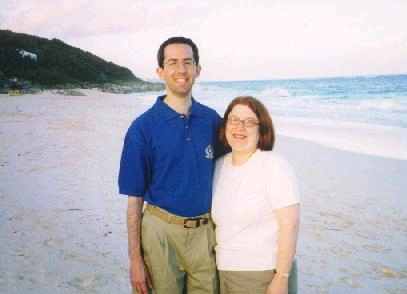The public meeting this week between Israeli and Pakistani officials in Turkey, following months if not decades of private meetings, carries a punch above its weight in the Moslem world and reflects certain opportunities which may not be immediately apparent to Jewish or Israeli observers. The overture by Pakistan should not simply be viewed as a matter of trying to undercut recent Israeli and American movements with India toward strengthening relations to its detriment.
According to the BBC, Saudi Arabia’s King Abdullah gave his approval for this meeting. The close ties between Pakistan and Saudi Arabia should not be underestimated. Last time I was in Riyadh, the only two English language TV channels in the 5-star hotel I stayed in were Saudi 2 and Pakistan. It is widely believed that Pakistan serves as Saudi’s back-channel to nuclear weapons and its insurance against Iran, a country with which it has relations but which it greatly distrusts.
Remember a number of years ago when then crown prince Abdullah initiated an overture toward Israel via Thomas Friedman of the New York Times. His initiative was to lay the groundwork for a comprehensive settlement with the Israelis. His initiative was not accepted by Netanyahu’s government, was viewed skeptically as a PR-move by the Jewish community, and failed in the Arab League because by then there was no reason to take it seriously. Abdullah is not known as being a terribly sophisticated diplomatic personality and his clumsy floating of the idea in plain language, which was parsed for nuance that wasn’t there, was taken as a bit of a joke. I’m not sure that even Tom Friedman realized the ramifications involved because his columns didn’t argue the point and nobody else did at the time.
Later that year Arabs in the know told me that a major opportunity had been missed and that people did not recognize the full extent of what Abdullah was proposing. What he was suggesting was the concept of a “Sulha,” a blanket reconciliation with Israel both on a political as well as a religious level. A Sulha is an Arab-oriented mechanism for resolving disputes when, for instance, families are caught in a cycle of revenge and don’t know how to get out of the blood feud that has ensued. Everybody just decides to wash their hands of the matter and agree to stop being in conflict. Sulhas are generally decreed by a village elder or tribal leader and are binding upon everyone involved. It is a necessary mechanism to preserve order and move on with things and such decrees are observed to the point where violation of a Sulha is an affront against the community. Because Abdullah is not only the political head of Saudi Arabia but also the patriarch in charge of Mecca and Medina, the de facto center of the universe for the vast majority of the Moslem world today, he can offer a Sulha like no one else can.
We in the West can argue whether or not there is a clash of civilizations. Islam takes it as self-evident that it is in a clash of civilizations with other religions on the planet. Abdullah is in a unique position to reconcile with other religions and to deliver the majority of the Moslem world along with him.
Israel is not only in a conflict with Arabs; Arabs are a geographically defined body of people. Israel, as an extension of the United States, is in conflict with the greater Moslem world, which accounts for a good percentage of the planet’s population. No matter how many peace treaties are signed, there will be no peace felt by people until they feel that Islam is also reconciled with Jews and Zionism. Egypt and Jordan are not only in a cold peace with Israel because the Palestinian conflict is still unsettled but because there is imbedded hostility about all things Jewish that has not been dealt with in a human way. Imagine the feeling people from Pakistan to Indonesia who are not even part of the Arab world and who are fed a daily diet of antisemitism. The conflict between Judaism and Catholicism began to be healed when popes began in 1967 to adjust religious doctrine to reconcile with Judaism. The equivalent has not yet happened in the Moslem world. This problem cannot be solved by government propaganda or foreign aid, but must be dealt with in language that common people understand. For the Moslem world, that language is Islam, a context for living life that is more pervasive than religion is as it is practiced in the West.
Arabs elites continue to think that if Abdullah offers a carrot to Israel and the Jewish world, that it should take an inch and try to grab it for a mile. Abdullah’s blessing to Pakistan to hold public talks with Israel should be viewed as a stepping-stone toward future overtures that would involve Saudi Arabia not only in the background but as a participant. Abdullah as crown prince had to answer to a family council and ran the government as a caretaker. As king, he has more flexibility to execute decisions, appoint his own officials and take initiatives. Considering that he has done so as crown prince, he might be even less tentative as king. Whether or not he will decide that it is worthwhile to float another Sulha remains to be seen but, if he does, Sharon and his advisors as well as the broader Jewish world would be well advised to take his overture seriously. It will be a mistake to parse his words like lawyers looking for loopholes, which is what Netanyahu and his advisors did and it was enough to kill the overture. I am advised that Abdullah is a simple man of the land who has to be taken at face value. If he puts out a one sentence call for a Sulha, that’s what it means. Sharon, similarly a man of the land, is more likely than Netanyahu to read Abdullah for what he is. The Jewish world should also be aware of these possibilities and be better situated to react to them properly if they are introduced into the realm of discussion by Saudi Arabia or any other prominently situated Moslem leader.
Ivan Ciment is publisher of www.globalthoughts.com and is an owner of a legal consulting company based in New York City.




